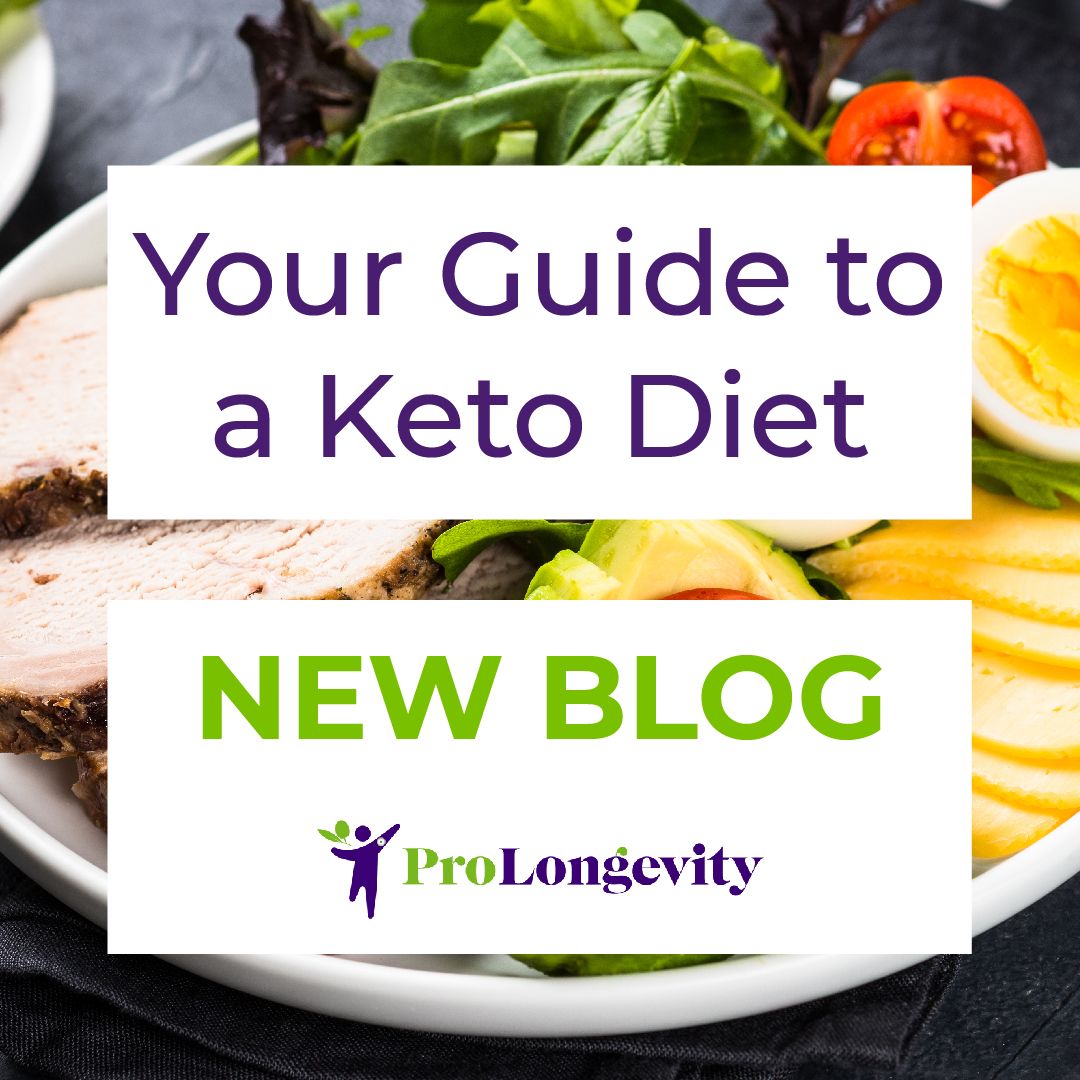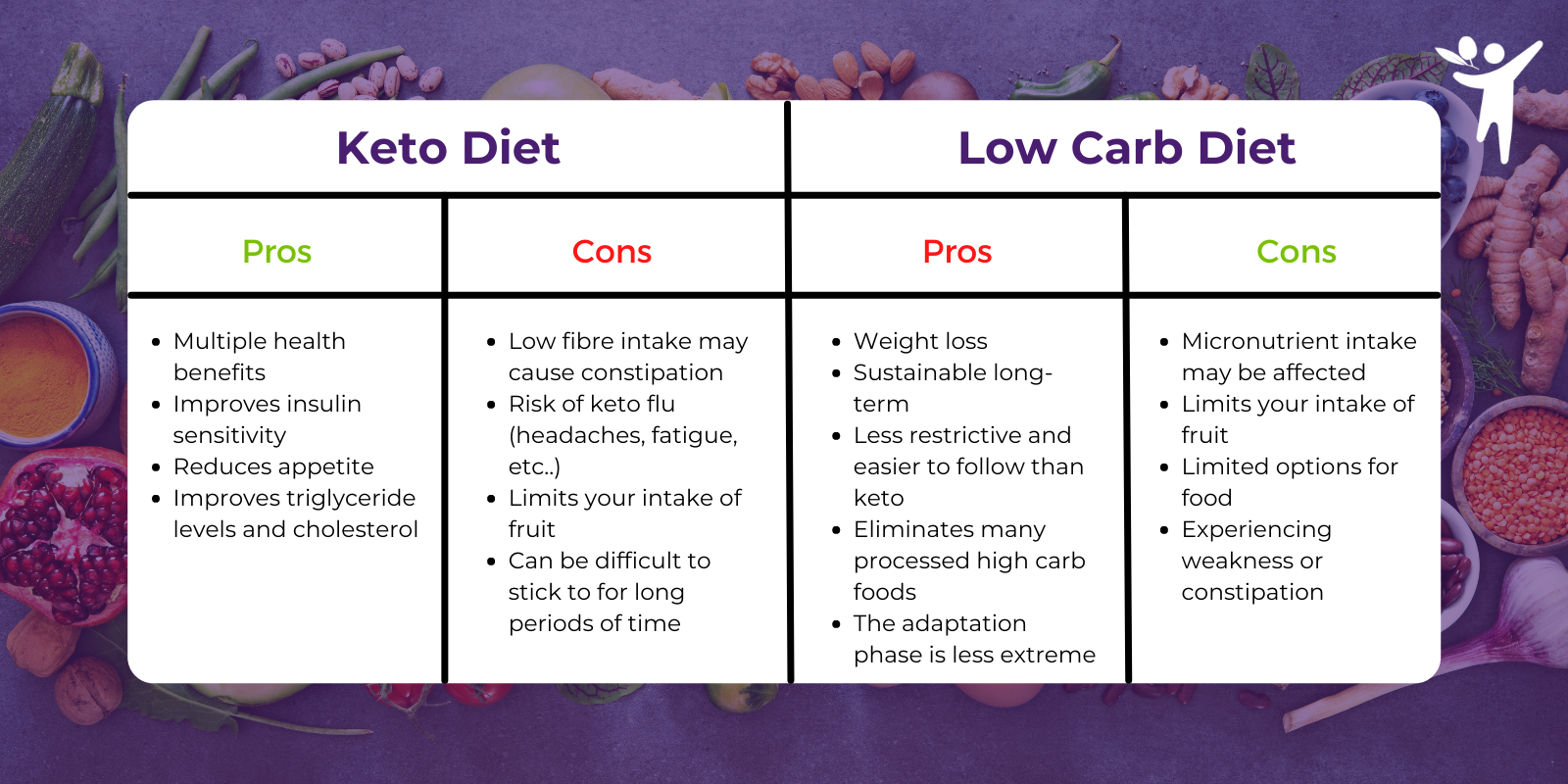What is a Keto Diet?
Ten years ago almost no one had heard the term “KETO” and the mainstream dismissed it as some kind of dietary lunacy that would not end well for its proponents! Yet today “KETO” is the most-Googled diet!
The keto diet’s increasing popularity is due to its manifold potential benefits for blood sugar control, weight loss, and general health but what does it actually entail?
Enjoy our in-depth guide that will give you deep insights into all things keto so you can ‘Live Healthy For Longer’!
Ketogenic diets are extremely low/no carb, high-fat diets. As a result of eating far fewer carbs, the body starts burning fat for energy instead of sugar. The result is a metabolic state known as ketosis. Ketones are small molecules your liver produces from fat, which can be used by your brain and other organs to create energy.

Keto diets are extremely beneficial for those who want to lose weight without being constantly ‘hangry’ (hungry and irritable). Studies have been successful in proving that the keto diet improves metabolic syndrome, type 2 diabetes and general health.
To learn more about the Keto lifestyle, listen to this podcast from Fabulously Keto:
https://fabulouslyketo.com/podcast/002/
The Fab Keto team are great friends of ProLongevity and have recorded several podcasts with Graham Phillips our founder a couple of which can be found here:
What are the types of Keto?
Over the years many controversies and myths about the keto diet have emerged, but it is very safe and beneficial for many people. (Please consult with your doctor, to decide whether a keto diet is right for you).
There are multiple different keto diets, so it is important you find the one that works best for you! The 3 main keto diets are listed below:
• Standard Ketogenic Dieting (SKD)
This is the most common version: it is a very low carb, moderate protein and high-fat diet. It typically contains 70% fat, 20% protein, and only 10% carbs. You should consider the SKD if you plan on losing weight and are living quite a sedentary lifestyle.
• Targeted Ketogenic Dieting (TKD)
This version of keto allows you to add a small number of carbs to meals around workouts. This diet is usually followed when you are taking part in regular physical activities and the SKD diet adversely affects your performance. However, on the days when you are not exercising you should still follow SKD.
To compensate for the added carbs, it is crucial to cut back on fat intake.
• Cyclical/Cycle Ketogenic Dieting (CKD)
This diet involves periods of higher-carb re-feeds, such as 5 Ketogenic days followed by 2 high carb days.
Keto vs low carb
As a keto diet, low carb is about restricting carbohydrates from your diet mostly bread, pasta, grains and sugary beverages. Like the keto diet increasing your protein, healthy fats and veggie intake replaces the lost carbs.
Weight loss is achieved by the restriction of carbs and the elimination of high-calorie foods. The health benefits are similar to those of keto, including blood sugar control and reducing the risk of cardiovascular complications.

Please consult your physician before deciding which diet is right for you.
Keto Supplements
Using ketone supplements is claimed to be a bio-hack to make your body go into ketosis without following the full ketogenic diet. Researchers found that taking exogenous ketone supplements (such as MCT Oil) in a fasted state may decrease appetite for over four hours, but other studies suggest they may hinder weight loss efforts.
Many participants in studies have stated that they experienced the ‘low carb flu’ or ‘keto flu’. This includes headaches, fatigue, brain fog, bad breath, increased hunger, poor sleep and nausea. The symptoms can often be reversed by taking extra salt – for example in salty bone broth or Bouillon.
We suggest before trying ketone supplements try the low carb diet first because it’s a great way to reduce weight and gain health benefits without restricting yourself to a Ketogenic (extremely low carb) diet.
For a free consultation with our founder Graham Phillips, please click here!
Keto and alcohol
Counting carbs while drinking isn’t easy. Many alcoholic drinks (especially real ales) contain a lot of sugar and carbohydrates, which can cause a spike in your blood sugar, which sets off a vicious cycle of hypoglycaemia.
Your liver can’t convert fat into glucose when you drink alcohol, so you’re at a greater risk of hypoglycaemia once your blood sugars start to drop. Drinking these beverages can lead to a spike in blood sugar followed by a steady drop several hours later, often while sleeping. The result is disrupted, poor quality sleep and damaged health
When it comes to drinking, it’s good to be well informed about all of the facts so you can choose the right type of drink:
• Low-sugar beers and ciders – sometimes called diabetic drinks – should be avoided. Their sugar content may be lower, but they may contain more alcohol.
• Low-alcohol wines typically have more sugar than normal wines. If you decide to select these, drink them in moderation. Be careful when drinking beverages with a lot of sugar, like sweet wines, and liqueurs.
For more on alcohol and diabetes, please read this blog.
Keto and fruit
Fruits are naturally sweet because of the sugars (fructose and glucose) they contain; they are like nature’s candy. In general, the sweeter or larger the fruit, the more sugar it contains. On a keto diet, dark berries are okay in moderation, while other fruits should be avoided.
Some fruits (e.g. blackberries) are rich in fiber. This is a non-digestible carb and does not contribute towards your daily net carb count, meaning these fruits hold less (digestible) net carbs.
(Total Grams of Carbs – Grams of Dietary Fiber = Net Carbs)
Low carb diets can be hard to navigate but with the ProLongevity service, we shoulder your worries and introduce you to great nutrition that will not make you feel ‘hangry’. Instead, you’ll feel energised and healthy.
We have compiled a list of the best low carb/keto fruit from lowest to highest.
For more information take a look at this blog.

Prolongevity X Diet doctor
If you are interested in pursuing a keto diet or a low carb diet we highly recommend Diet Doctor! You can find Graham’s Podcast with Dr Bret Scher the medical director of Diet Doctor here!
Don’t miss out on a FREE Diet doctor membership when you sign up for the ProLongevity gold package.
To know more information and what we can do for you, book your FREE 15-minute consultation with our founder, Graham Phillips.






